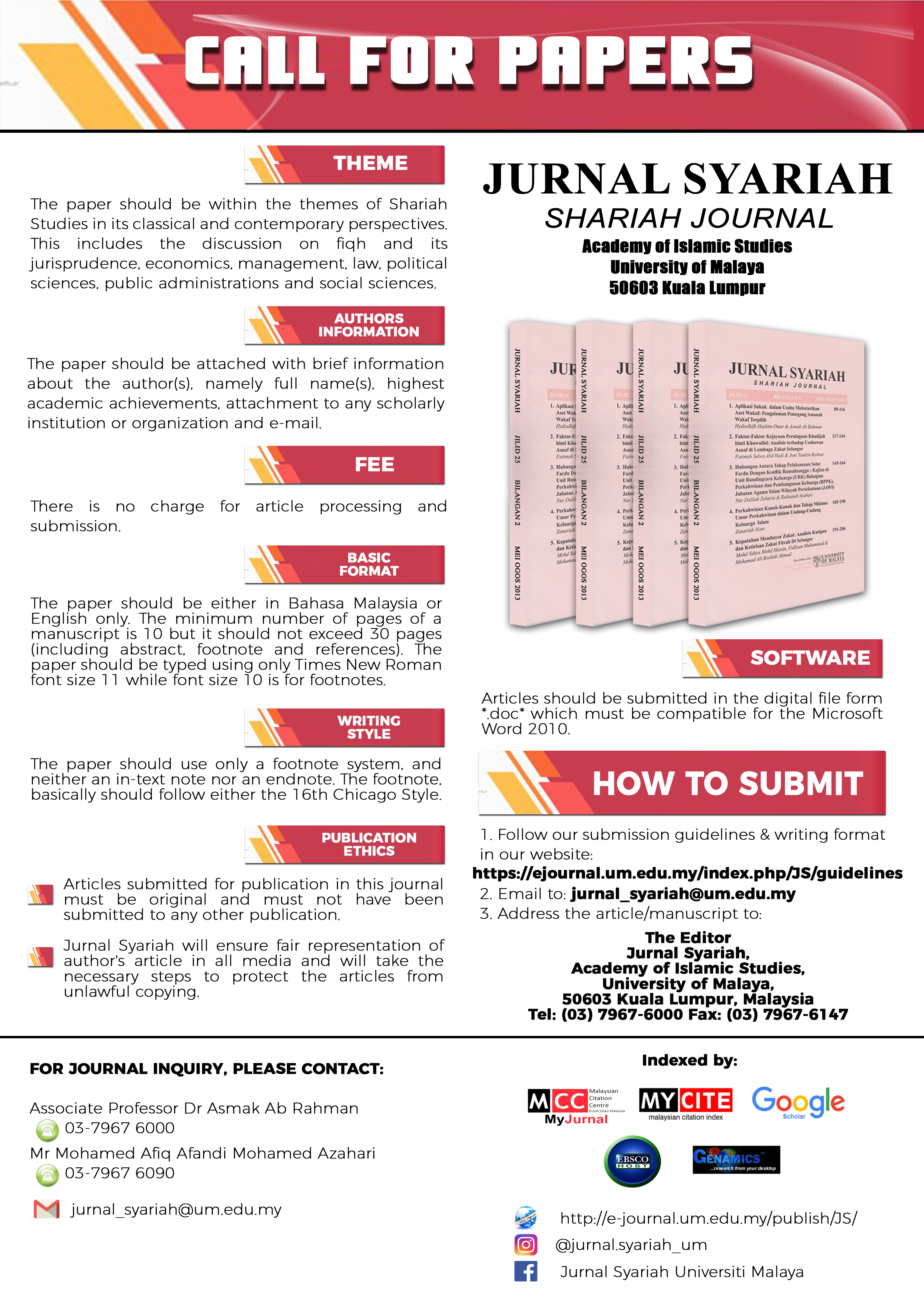KONSEP SEMAK DAN IMBANG MENURUT ISLAM DAN APLIKASINYA DALAM SISTEM KEHAKIMAN ISLAM DI MALAYSIA
The Concept of ‘Checks and Balances’ in the Perspective of Islam and Its Application in the Islamic Judicial System in Malaysia
DOI:
https://doi.org/10.22452/js.vol24no1.3Abstract
This article discusses the concept of ‘checks and balances’ in accordance with Islam and its application in the Islamic Judicial System in Malaysia. As the main objective of establishing the court is to uphold justice between disputing parties, ‘checks and balances’ are perceived as a mechanism in assisting our Islamic judiciary towards achieve this objective. Despite the ambiguity in understanding this concept in Islam, it has been widely used in Western nations, whether in administration or law. Yet, this does not mean that Islam does not have a specific mechanism in forming or managing a government. Islam has actually practised this concept long prior, consistent with the contents of the al-Qur’an and Sunnah; especially in both administrative and judicial aspects. Thus, the objective of this paper is to study the concept of ‘checks and balances’ in Islam. For the purpose of this study, the researcher used a qualitative research methodology involving a content analysis study through primary and secondary sources including semi-structured interviews. The finding of this study discovers that the word ‘Hudud Allah’ is widely used in Islam rather than the ‘checks and balances’ term which was introduced by Western legal system. The principles contained in the ‘Hudud Allah’ cover both the external and internal aspects of each individual, which later produces the most trustworthy and fair creatures of Allah in every aspects of their lives. This would then be the differentiation between the ‘Hudud Allah’ and the concept of ‘checks and balances’, in which the ‘checks and balances’ concept only focuses on the external aspects of governance.
Downloads
Downloads
Published
How to Cite
Issue
Section
License

This work is licensed under a Creative Commons Attribution-NonCommercial 4.0 International License.
COPYRIGHT: All rights reserved. Not allowed to be reproduced any part of articles and contents of this journal in any form or by any way, whether electronic, mechanical, photocopying, recording or otherwise without permission in writing from the Chief Editor, Jurnal Syariah.



















